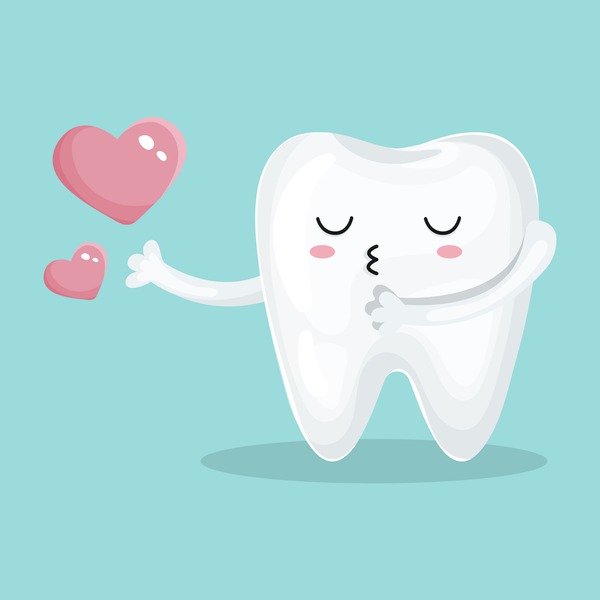Visiting the dentist regularly keeps your teeth healthy and your smile beautiful. Dental exams are routine visits designed to inspect, clean, and protect your teeth. Many people feel uneasy about attending dental appointments, but knowing what happens can ease any worries.
What Happens During a Dental Exam
Initial Assessment of Teeth and Gum Health
Your dentist begins by visually inspecting your teeth and gums. They use special tools and mirrors to see difficult areas, checking for problems like cavities, gum disease, worn enamel, or tooth damage, and noting any concerns.
Next, your dentist looks for visible signs of gum difficulties. Healthy gums appear pink and firm, while swollen or bleeding gums may signal gingivitis or more advanced gum problems. In such cases, they might suggest consulting a reputable periodontal care company in Palm Coast to provide specialized treatment and support.
X-Rays and Imaging Tests
X-rays give dentists a clearer picture of your teeth, jaw, and mouth structure. Your dental team uses special protective covers to ensure your safety from radiation. X-rays uncover issues unseen during visual inspection, such as cavities between teeth, impacted wisdom teeth, or bone deterioration.
Your dentist examines these images to detect hidden complications early. Early detection often prevents serious interventions later, reducing discomfort and saving money.
Professional Cleaning Process
Once initial assessments are finished, your dental hygienist will begin the cleaning procedure. First, they use specialized dental tools to carefully scrape built-up plaque and tartar from teeth surfaces. Regular brushing regularly at home prevents plaque, but tartar often needs professional removal.
-
Scaling: Remove plaque and tartar carefully from tooth surfaces above and below your gum line.
-
Polishing Teeth: Using a special paste and electric tool, giving teeth a smooth surface making it harder for plaque to stick.
-
Flossing: Your hygienist flosses between your teeth, cleaning areas that brushing alone cannot reach sufficiently.
Oral Cancer Screening
Your dental professional checks closely for signs of oral cancer during your examination. They evaluate your entire oral cavity, including gums, tongue, throat, inner cheeks, and the roof and floor of your mouth. Early detection of oral cancer drastically improves treatment outcomes and helps maintain your overall oral health.
This screening process is brief and comfortable. Any suspicious areas would be noted for further analysis or referred for specialist evaluation if required.
Cavity Detection and Filling Recommendations
Your dentist will examine your teeth for cavities carefully using dental instruments designed specifically for early cavity detection. Identifying cavities right away avoids worsening tooth decay or pain.
If cavities exist, your dentist discusses available filling options. Common fillings include composite resin or amalgam materials, and your dentist will select material suited to your specific cavity and teeth location.
Assessment for Orthodontic Needs
During dental exams, your dentist also observes your bite and teeth positioning. They check alignment, gaps between teeth, bite balance, or if teeth are overcrowded. Misalignment contributes to future difficulties, like uneven tooth wear, cavities, or jaw discomfort.
Your dentist may recommend orthodontic solutions, such as braces or clear aligners for straightening your teeth. Addressing orthodontic concerns preserves future dental health and enhances your smile.
Recommendations for Dental Health Improvements
A crucial part of dental exams includes discussing ways to enhance dental hygiene and reduce cavities. Your dentist or hygienist offers individualized suggestions to improve your daily dental cleaning habits. They make sure your brushing and flossing techniques are effective and suggest helpful dental products.
Additionally, dietary habits receive a review as your dentist suggests decreasing sugary foods or beverages to avoid cavities. Exploring restorative options is another important aspect of maintaining oral health. In some cases, implant dentistry in Palm Coast may be recommended to address tooth loss and restore dental function. Adoption of this valuable feedback benefits your oral health significantly in the long run.
Questions You Should Ask Your Dentist
It is beneficial to come prepared for dental exams with questions for your dentist or hygienist. Asking questions ensures you get maximum value and a clear picture of your oral situation. Your dental professional will gladly answer concerns and clarify any uncertainty.
Some helpful queries to have ready could include:
-
How often should I actually visit for dental exams and cleanings?
-
What is my risk level for developing serious oral problems?
-
Are there specific dental products I must avoid or strongly consider using daily?
-
Is there any dietary recommendation for better oral health management?
-
What preventative measures can I personally take for improving my daily oral health regiment?
Managing Nervousness About Dental Visits
Dental anxiety occurs frequently among adults and children alike, preventing regular dental care involvement. Informing your dentists openly about anxious feelings contributes significantly to making appointments comfortable. Dentists are empathetic towards anxiety concerns and implement methods to ease your anxieties successfully.
Several effective options handle apprehensions during dentistry visits, including distraction methods, talking openly, or using sedation dentistry if necessary. Sharing your feelings allows professional dentistry solutions designed specifically according to your personal comfort. For those considering more specialized treatments, such as dental implants, communicating with your Daytona Beach dental implants provider about any nervousness can lead to a more reassuring and positive experience.
Final Thoughts
A dental exam is detailed yet comfortable, keeping you protected against oral health complications. Regular dental appointments and professional assistance ensure your teeth remain strong, healthy, and appealing. With clarity regarding procedures during your dental visits, there’s less anxiety and improved confidence ain ttending on schedule.

